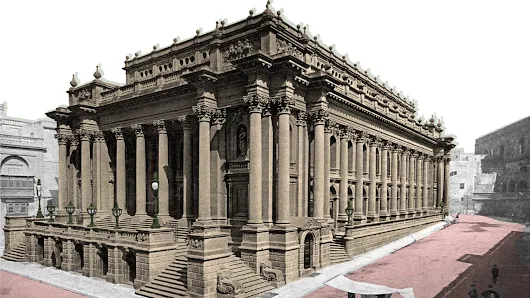Luftwaffe attacks shipping convoys, ports
Attacks on shipping convoys
With the fall of France, Hitler's forces reached the English Channel where they waited for a British surrender. When this was not forthcoming, Hitler started planning for a cross-Channel invasion. With his Chiefs of Staff agreed that air superiority over the RAF was crucial, the German air force began their offensive. They called it 'Kanalkampf', or Battle of the Channel.
From the beginning of July, the Luftwaffe probed the RAF's defences as a prelude to launching an all-out assault. On the 4th, there was a major attack on Portland and the anti-aircraft ship HMS Foylebank. Three days later, four RAF pilots were killed in battle and three more the following day.
Then, from 10 July, attacks focused on the ships bringing vital supplies to Britain. The Luftwaffe tempted RAF fighters out over the Channel to test their defences and daily dogfights took place over the water and the south coast. On 14 July, BBC reporter Charles Gardener excitedly (and, for some, inappropriately) described an attack on a convoy by Junkers Ju87s (Stukas) and Messerschmitts that was fought off by Spitfires and Hurricanes.
During this period, 30,000 tonnes of shipping was lost, although this was from a total of almost a million tonnes passing through the Channel every week. However, on 29 July, the Admiralty re-routed daylight convoys out of the Channel as it was becoming too costly to sustain.
Bombing of ports on the South coast
As well as attacking convoys, the Luftwaffe also bombed ports on the south coast and as far afield as Swansea. Dover was particularly badly hit, earning it the name 'Hell-Fire Corner'. The plan was to destroy some of the ports' defences in order to make an invasion easier.
The Luftwaffe also attacked some airfields and radar stations. Fortunately, the Germans did not fully understand the importance of radar or how it was used and never launched an attack strong enough to cripple the system completely. However, radar stations were a favoured target for the Stukas and some were very badly damaged.
But changes were afoot. On 1 August in his Directive Number 17, Hitler ordered the obliteration of all RAF flying units, ground units and supply organisations, as well as the destruction of the British aircraft industry.
So Hermann Goering, head of the Luftwaffe, added Fighter Command's airfields to his hit list. The probing was over - the 'Eagle Attack' was about to begin.
http://www.bbc.co.uk/history/events/germany_bombs_british_coastal_airfields .
Battle of Britain - tb >> .
Battle of Britain and Artie Holmes' Hurricane - HiGu > .


